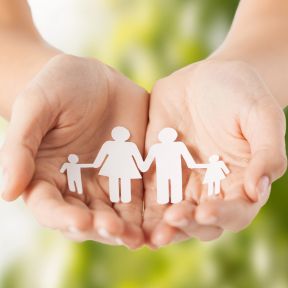
Miscarriage
A miscarriage is a pregnancy that ends unexpectedly before 20 weeks gestation. Experiencing a miscarriage is fairly common, occurring in 10 to 25 percent of pregnancies. Miscarriage is also referred to as early pregnancy loss or, in medical terms, a spontaneous abortion.

A woman miscarries when she experiences a spontaneous loss of pregnancy before the 20th week. The symptoms of a miscarriage include bleeding, cramping, low back pain, and the release of fluid or tissue. However, not all instances of bleeding are indicative of a miscarriage, and some women who miscarry don’t experience noticeable symptoms. Most miscarriages do not require treatment, but a procedure or medication may be necessary if fetal tissue remains in the body.
Pregnancy loss can also evoke a range of powerful emotions, and couples often feel the loss deeply. Recognizing that those emotions are valid, discussing the experience with loved ones or a therapist, and marking the loss with a meaningful memento or ceremony can help a woman and her family to process and overcome that sense of grief.
The reasons for miscarriage are not well understood, and many women never receive an answer as to why the pregnancy was lost. But one common cause, which accounts for about half of miscarriages, is that the embryo receives an abnormal number of chromosomes from the egg or sperm. The risk of miscarrying also increases as a woman gets older.
Any pregnancy loss that occurs within the first 20 weeks is a miscarriage. Any time after that, it is medically termed a “stillbirth.” Miscarriages are particularly likely in the first seven weeks of the pregnancy, which is why many couples will wait to share the news with friends and family until the beginning of their second trimester.
A missed or silent miscarriage occurs when the embryo is no longer alive, but the mother’s body doesn’t realize it and, thus, doesn’t expel the pregnancy tissue. Generally, the mother will continue to experience the early symptoms of pregnancy until the fetus is expelled. This process may happen naturally or be hastened by medicine. If the pregnancy is farther along when the miscarriage happens, the doctor may need to perform a dilation and curettage (D&C).
A baby who is carried to term and born after a miscarriage is known as a “rainbow baby” in the infertility community. After pregnancy loss, some people are eager to start trying to get pregnant again right away, while others feel pressured and may take longer to recover. Still other people might discover that their needs and wants have changed after miscarrying, and they may find other roads to a satisfying life. There is no wrong answer if you follow your heart.

Pregnancy loss often evokes a deep sense of grief; feelings of guilt, shame, failure, and loneliness are both natural and common. Some develop depression or anxiety.
When parents-to-be discover a pregnancy, they begin to envision life with their future child. They may name the baby, prepare the house for its arrival, or daydream about time the family will spend together. Being forced to let go of those expectations and hopes can be painful.
Pregnancy loss, despite its prevalence, still seems to be shrouded in silence. A couple may not feel justified sharing the extent of their grief, or a friend may believe that it would be rude to inquire, which can compound feelings of loneliness. Yet sharing the experience can be tremendously helpful. Friends and family should not shy away from asking about the experience. It won’t make the person feel worse, and she or he will simply decline to discuss it if they prefer.
There’s a common myth about miscarriage that most women experience it as a non-event. While reactions to a miscarriage may vary, for some women and their partners, miscarrying can elicit a grief just as powerful as if they had lost a child who was already born. Whatever emotional response someone has to a miscarriage should be acknowledged and respected.
Don’t buy into the myth that talking about your miscarriage will only cause you more pain. Opening up to loved ones, and even guiding them as to the response or support you need, can help release loneliness and grief. Pregnancy loss support groups, online or in person, are a valuable resource to connect you to a community who best understands the experience.
Miscarrying can cause a woman great emotional distress. Doctors often cannot provide a definitive explanation for the loss, which can lead to anxiety, self-doubt, and feeling betrayed by one’s body, in addition to the physical toll a miscarriage sometimes takes. Women who miscarry have an elevated risk of miscarrying in a subsequent pregnancy, which can lead to intense anxiety throughout following pregnancies.
A miscarriage is not only difficult for the woman, but also for her partner. They may experience the same sense of loss and grief, but feel like they should appear strong for the woman and silence those emotions or channel them into work. Discussing the experience, especially if members of a couple grieve differently, can sustain the relationship through the loss.
Despite how common it is, miscarriage is a loss that often goes unspoken, partly due to stigma and partly due to people’s innate discomfort around grief. There is no correct timeline for how long someone may mourn a pregnancy loss, whether that means hours or years. Feelings may ebb and flow and change over time, and that’s a completely natural part of the process.
When someone you care about has experienced a miscarriage, start by asking how they’re feeling. Use specific, open-ended questions to acknowledge their grief, like “What are you doing to cope?” and “What can I do to support you in this difficult time?” Check in with them during holidays, like Mother’s Day or Father’s Day; sometimes just saying you’re thinking of them is enough. Let them know that what they’re feeling is natural, and it’s OK to seek help.














